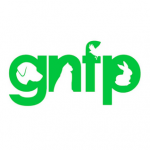Minneapolis (May 17, 2010) ” Spring is finally here and people are busy tending to their lawns and gardens. If you’re a pet owner, the following tips below from Pet Poison Helpline can help ensure that your pets are kept safe and stay away from certain plants, flowers and fertilizers that may cause them harm.
Flowers That Can Harm Your Pets
Tulips and Hyacinth” While the flower and greens of these spring plants are generally less toxic, the bulbs contain the concentrated toxic principle called allergenic lactones or alkaloids, respectively. Make sure to store these properly in the garage prior to planting, and that your dog isn’t digging them up out of the garden.
Daffodils – Ingestion of the bulb, plant or flower can cause severe vomiting, diarrhea, abdominal pain and even possible respiratory depression due to the toxin lycorine. While both dogs and cats can be poisoned by this, dogs typically are the ones digging these up and eating them.
Lilies – There are dangerous and benign lilies, and it is important to know the difference for your cat’s sake. Peace, Peruvian, and Calla lilies cause tissue irritation to the mouth, tongue, pharynx, and esophagus, resulting in minor drooling. The more dangerous, potentially fatal lilies include Tiger, Day, Asiatic, Easter and Japanese Show lilies ” all of which are highly toxic to cats. Even small ingestions, such as two or three petals or leaves, or even the pollen, can result in severe kidney failure.
Crocus – There are two types of Crocus plants: one that blooms in the spring and the other in the autumn. The spring plants are more common, and ingestion can cause mild vomiting and diarrhea. However, the Autumn Crocus is highly toxic and can cause severe vomiting, gastrointestinal bleeding, liver and kidney damage, and respiratory failure. Signs may not be seen immediately but can be delayed for days.
Fertilizers That Can Harm Your Pets
Blood meal ” While it’s a great organic fertilizer, if ingested, it can cause vomiting and diarrhea for dogs. More importantly, it can result in severe pancreatitis – inflammation of the pancreas.
Bone Meal ” Also, an organic fertilizer, this can become a problem when consumed in large amounts as bone meal forms a large cement-like bowling ball in the stomach of a dog ” which can cause an obstruction in the gastrointestinal tract ” resulting in possible surgery to remove it.
Rose and plant fertilizers ” Some of these fertilizers contain disulfoton and as little as one teaspoon of one percent disulfoton can kill a 55 lb. dog, so be careful. Worse, these fertilizers are often mixed with organic bone or blood meal, making the soil very palatable to dogs, increasing the amount of poison ingested.
Pesticides/Insecticides ” Most pesticides or insecticides (typically those that come in a spray can that are “ready-to-use”) cause only mild gastrointestinal upset or irritation when ingested indirectly. Concentrated products pose more of a risk, and should be kept out of reach of pets at all times.
Iron ” This is commonly added to fertilizers and can result in iron toxicity (from ingestion of elemental iron). While most types of fertilizers contain small amounts of iron (typically less than five percent), some are highly concentrated and can result in severe poisoning. This latter type often comes in child-proof containers, but even these are not dog-teeth proof!
Fertilizer ” Most fertilizers that are applied directly to the lawn (in either a liquid spray or granular form) are generally safe when applied appropriately. Make sure to keep your pet off the grass until the product has dried appropriately or the granules have been wetted down. Thankfully, these carry a low-level of toxicity, but can cause mild gastrointestinal upset when large amounts of grass are ingested or when the product is ingested directly from the container.
When in doubt about plants or fertilizers, have your veterinarian or the veterinary professionals at Pet Poison Helpline assist in finding out whether the amount ingested by your pet was toxic. Large ingestions of many of these gardening or lawn products can result in vomiting, bloody diarrhea, and potential cardiac and liver effects.
The best thing any pet owner can do is to be educated on common plants, flowers and fertilizers, and to make sure you pet-proof your yard appropriately. Make sure to keep your pets away from certain flowers and keep fertilizers out of your pet’s reach, but when in doubt, if you think your pet has been poisoned, contact your veterinarian or Pet Poison Helpline at 800-213-6680 with any questions or concerns.
About Pet Poison Helpline
Pet Poison Helpline is a service available 24 hours, seven days a week for pet owners and veterinary professionals who require assistance treating a potentially poisoned pet. Pet Poison Helpline’s experts can provide treatment advice for poisoning cases in all species, including dogs, cats, birds, small mammals, large animals and exotic species. As the most cost-effective option for animal poison control care, Pet Poison Helpline’s fee of $35 per incident includes all follow-up consultation. Pet Poison Helpline is available in the US and Canada by calling 800-213-6680. Additional information can be found online at www.petpoisonhelpline.com.
